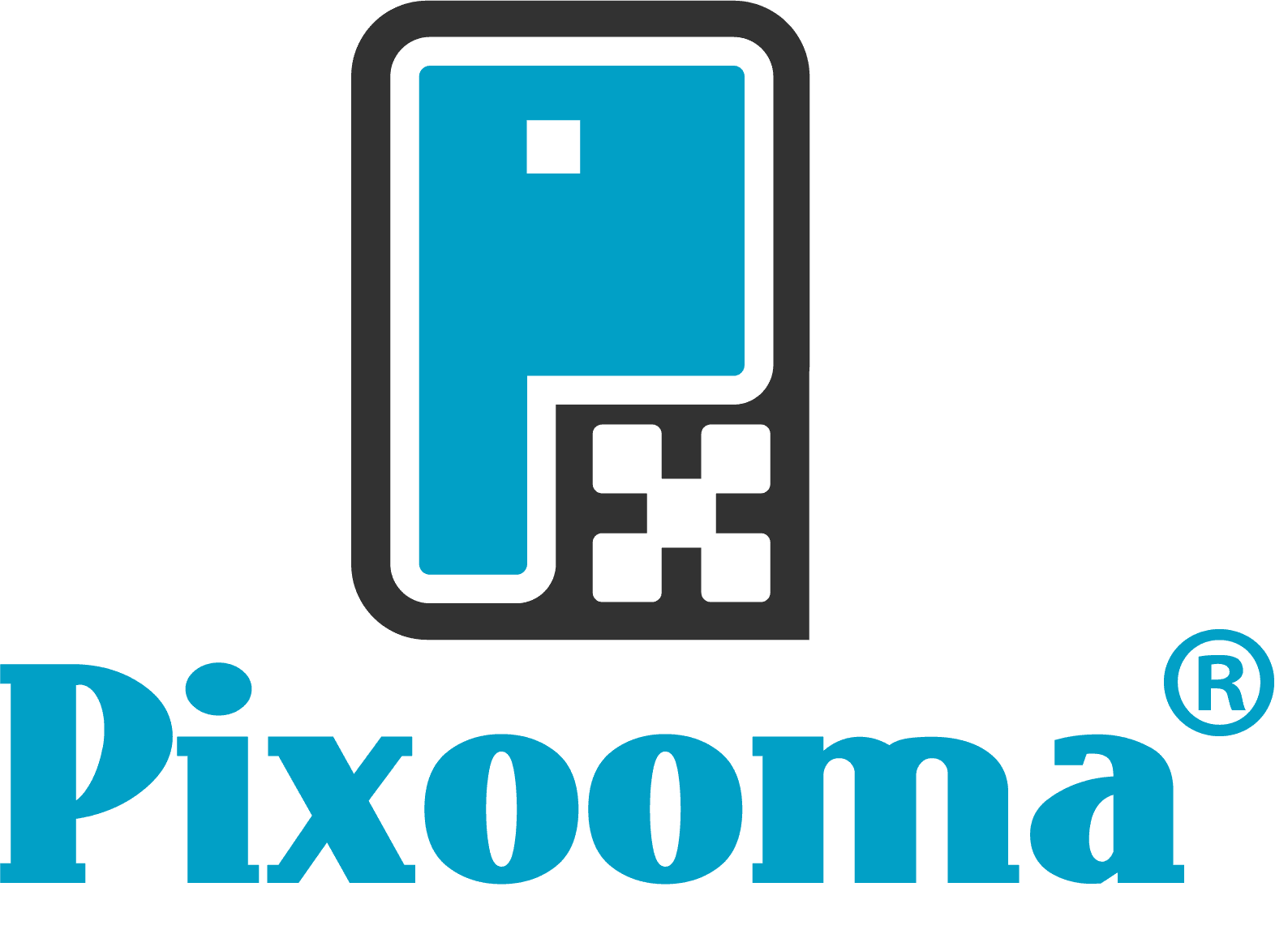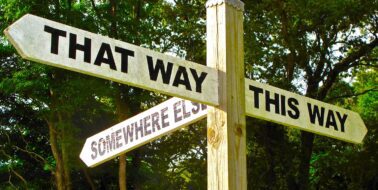Where can I get
stock images from?
[wpseo_breadcrumb]
There are a vast array of sources for 'stock' images and new ones seem to appear all the time, so we will keep this article updated when we find good new ones. Therefore what follows is not a comprehensive list, but it is a very good starting point for your projects.
A word of warning
The legal landscape for stock photography and the possibility for using images without a licence (whether wilfully or through ignorance) is large and complicated. We would offer the following general common-sense guidelines below but they do not constitute legal advice as we are not in a position to offer such advice. Our thanks to Hayley Mauro of Wilson Browne who has provided us with some guidance around the issues of infringement – if you ever find yourself in a situation where you have been accused of an Intellectual Property infringement Hayley would be happy to advise you on the first steps to you need to take.
Whether wilful or not an infringement is an infringement, you cannot 'un-use' an image that the copyright holder claims you do not have rights to use. The damages the copyright holder can seek can vary enormously from simple reimbursement of the original image cost through to a claim in respect of the commercial benefit you have gained by using it.
In general, the paid-for libraries – as you would expect - offer some form of protection in the case of a claim of infringement against you when using one of their images as long as you have followed the terms of the licence. The free libraries generally do not offer any sort of guarantees or protection and the clarity of the information and the checks they perform vary, so we would advise that you always check the individual terms and conditions carefully and satisfy yourself of the level of risk involved.
Whether wilful or not an infringement is an infringement, you cannot 'un-use' an image that the copyright holder claims you do not have rights to use.
Stock image libraries that charge a fee
1. Premium Libraries
The world's largest photo library: We couldn't find any definitive record of how many images Getty has – perhaps they stopped counting – but we found one suggestion it maybe 160 million!
They provide Rights-Managed, Editorial and Royalty-free image licences, more detail on which can be found in our article "Stock Images: What do image royalty-free, rights-managed and other licences mean?".
For royalty-free images they charge between £50 and £485 per image, depending on the size that you select. There are slight savings to be made if you buy an 'Ultra-pack' but they are still pricey.
The average quality is definitely higher than other cheaper libraries and they clearly carefully control what is allowed into their library, but not enough to warrant the extra cost generally, in our view at least.
This is the premium brand of Shutterstock. We couldn't find out how many images they have, but the library is a relatively new player (2013) and seems to have a small curated library from just a few specified artists, possibly less than a million images in total.
They provide Royalty-free and Editorial images only.
All their images have two price levels - £240 for low-resolution (72dpi) and £480 for high resolution (300dpi) images, they have credit packs available that mean each image is slightly cheaper, but they are still pricey.
They clearly curate their collection carefully as the average quality is higher than other cheaper libraries, but not enough to warrant the higher price in our opinion.
2. Regular Libraries
Shutterstock has over 80 million Royalty-free images available and has grown rapidly since it's inception in 2003.
The cost for a single image is £32, but if you buy their 25 image pack this drops to just over £5. All image sizes cost the same price.
Alternatively you can subscribe to the library at several price points between £109 and £165 (depending on whether you go for a single month or a year), which entitles you to download between 350 and 750 images a month.
The image quality is generally very good, although some search terms do provide more clichéd images than the premium libraries.
Its library served Pixooma's creative director, Mark Coster well when he worked at RCI as they used this library for many years. Some search results did become a little 'tired' after a while but this is only to be expected when it is being used so extensively every day.
iStock is now owned by Getty and has many millions of Royalty-free images available, although it is difficult to establish just how many exactly.
All their images are priced the same irrespective of size, but they have two basic price points: 'Essentials' which cost one credit and 'Signature' which cost three credits.
They have a wide range of credit packs available that mean each image will cost between £1 and £20 depending on how many credits you buy and whether you opt for 'Essentials' or 'Signature'.
Alternatively you can subscribe to the site for between £49 and £259 (which depends on whether you opt for a single month or yearly subscription), which entitles you to between 50 and 250 images a month.
iStock is a good library generally, but as with Shutterstock it can provide more clichéd results than the premium libraries, so requires more thorough searching.
Bigstock offer over 36 million Royalty-free images.
All images sizes are the same price and there are various image packs available and they mean that each image costs between 80p and £3 depending on which pack you opt for.
They also have an overwhelming range of options for subscriptions which – depending on whether you go for one month, three months or a year – costing between £45 and £154 per month, with monthly download limits between 25 and a staggering 1500 images!
We are not so familiar with this library, but it seems to have a generally good to very good image quality depending on the search criteria, but there also is more in the way of clichéd images than in the premium libraries.
A relatively new player in the stock image market, nevertheless it already has over 50 million Royalty-free images available. It is built on the old Fotolia library that Adobe purchased in 2015.
Single images are £5.99, but there are also plans available between £19.99 and £119.99 depending on whether you opt for a month-only or yearly plan. These plans allow you to download between 10 and 750 images a month and all images are priced the same.
Adobe Creative Cloud subscribers get a discount on the plan pricing.
The quality of the imagery is generally good, although as with all the standard libraries there are more clichéd images in the search results as they are not so heavily curated as the premium libraries.
This is Envato's 'standard' library as opposed to their curated collection, 'Unstock' (see above). It's library is not huge, but it does have over 9 million images so is not insubstantial either. There is a good search function although there aren't many filters to help narrow your results.
Every image is priced according to size and is between $1 and $7. They are all royalty-free in nature, but use Envato's rather unusual approach to licensing (see above)
The image quality is average to good, but is no match for the 'Unstock' library.
This library was founded in 2009 and claims to have over 21 million photos, vectors, illustrations and videos, all of which are Royalty-free.
The terms and conditions for the site are very comprehensive and easy to understand for visitors, purchasers and submitters alike.
They have a range of payment options from the usual credit packs and subscription plans with download limits, to their flexible plan which is a combination of the two. Depending on whether you opt for yearly/monthly plans or credit packs you'll pay between approximately £0.65 and £4 per image (based on currency rates at time of writing as the site is priced in US$)
The quality is consistent with other stock libraries such as Shutterstock, iStock and Adobe Stock and seems to have a good range. Their terms state that all images uploaded must be a minimum specified size which is approximately A4 landscape when at print resolution (300dpi), but our tests showed the images were generally much larger than this.
FREE libraries
There are many different sorts of 'FREE' so be careful when selecting imagery from these sources. The best ones make it clear what licence the images are provided under, but not all do.
1. Curated Free Libraries
All Pexels images are offered under the Creative Commons CC0 licence, which means they are public domain and can be used for any purpose personal or commercial. The only restriction is that if there is anyone identifiable in the image (i.e you can see their face etc), you do not use it for a purpose they may find offensive unless you get their permission.
The instructions for photographers to upload their images clearly state that in doing so they are providing them as CC0 licensed images and they always provides a link to the source, so although there is a chance that the person uploading the images does not actually own the rights to the image there is a person to contact if in doubt.
The quality of the imagery is surprisingly good and is comparable to – if not better than in some cases – the likes of Shutterstock and iStock, however we suspect that the volume of imagery is much lower.
Our only gripe is that the search results are all presented as an infinitely scrolling single page, which means there are no page numbers. This might seem like a small matter, but it means you can't skip forward say five pages, or look through the results in reverse order. It also means that you don't know how many results there are in total, so you can never be sure how long it will take to look at all the results. It's also why we can't know how many images Pexels holds in its library.
Pixabay has 660,000 public domain images using the Creative Commons CC0 licence, so they can all be used for any purpose personal or commercial. The only restrictions are that if there is anyone identifiable (i.e you can see their face etc), you do not use it for a purpose they may find offensive unless you get their permission, and that if there are identifiable brands or famous landmarks etc you do not suggest endorsement of your company by them.
There is a really detailed section on the website regarding their quality guidelines for submitting images and this includes detail on copyright, so this gives confidence that they are serious about providing a quality library of correctly licenced CC0 images. The images all provide a link to the person who provided the image which offers further reassurance and a way to contact the photographer if in doubt.
Mostly the image quality is very good, although we did find some rather odd images that supposedly met the site's quality guidelines. Also as with all free libraries the proportion of clichéd imagery is higher than in paid-for libraries, so careful searching is required.
It is unclear how many images are in this library as there is no information available, but as they were all supposedly taken by one person it is fair to assume the library is not vast.
The image quality is good, but the subject matter is pretty quirky so you may struggle to find something based on a specific search. However, if you are looking for a quirky image to grab attention they might work…
As the author of the site is also the sole photographer it seems clear that the CC0 licence status of the images is correct, assuming he is telling the truth of course.
His only stipulations that are not covered in the CC0 licence are that you don't sell or distribute the images as stock images elsewhere, use them in any pornographic or defamatory way or use them in any way that suggests you are the owner (which seems fair enough).
There are no clear indications how big this library is, but it claims to have hundreds of new images added every week, which sounds like a lot, but is a small fraction of the number uploaded to the paid libraries each week.
The sites terms make it clear that they require all persons submitting imagery to do so under the CC0 licence i.e making them public domain images, and that they further require the submitter to certify that they own the rights to the image and therefore can provide the image as public domain. The site indicates that although they do every check they can, they can't guarantee that the person submitting the image has the applicable rights to do so, however the same terms also specify that the submitter will be required to indemnify the site in the case of a dispute of any kind. This approach is reassuring and shows the site is careful about its content and is taking the right steps to try to protect anyone who downloads images from their site.
The site also provides links to the submitter/photographer for every image meaning there is a way to contact them if in doubt.
The image quality is generally good to very good, but has a definite 'hipster' vibe to it, so may not work for every project.
It's not clear how many images are in Negative Space's library, but it appears the only add 20 or so every week so it will not be extensive.
Unlike the sites above it doesn't have any detail about submission guidelines or the ways in which it tries to ensure images are public domain, but it does claim that every image is part of the CC0 licence. Some of the images are available as 'RAW' files however which suggests the site is being supplied by the actual photographers as otherwise this filetype wouldn't be available (It's what the professional digital cameras save images as). There is also a contact for the site owner so you can send them a message if you want to clarify something.
The image quality is very good, but the number of search results is small and they are all of a similar particular style.
Unsplash, like Death To The Stock Photo, is trying to approach stock photography differently. Everything is curated and appraised by their team and so the number of images in their library is very small.
The library is built of themed 'collections' which – if you subscribe – they will send you each time a new one is added (typically 10 or so images once or twice a month). However the site is also searchable and is linked to an intriguing site called 'Made with Unsplash' which is a site showcasing where their images have been used, which could be great for inspiration.
All images are public domain under the CC0 licence, but there is no way of finding out about their submission guidelines and the checks they make without signing up as a potential submitter of images yourself. However there are detailed terms and a contact link, and the site appears to have been created by a graphic design agency rather than an anonymous person so this makes us more confident this is a good site to use.
The images generally are quite 'high-art' in style and the quality is very good indeed, it is just the range (due to the way they control submissions and curate the library) is quite limited.
This, along with a Unsplash is trying a new approach to stock photography. They started with their own collection of photographs (they are creatives themselves) and now accept submissions from other photographers.
There are no submission guidelines as such, but there are plenty of other terms and details of their licence. They aren't strictly public domain, it is more like a free Royalty-free licence instead, so you are free to use them as long as it is not for defamatory purposes and you do not redistribute the images as your own. The site was started by established creatives and so this would give some confidence that they are approaching copyright very carefully and in the correct manner.
The images are only available by subscribing (for free) to the site as they will then send you the images direct, therefore there is no search function on the site which is a limitation.
The quality of imagery is naturally very good and of an 'art' or 'hipster' vibe, and over time you'll amass a great collection of images, but it will take time and this wouldn't really work as a sole source of images.
A small collection of great images – some with a hipster feel.
The licence for all the images (except the premium collection) is clearly stated as being CC0, i.e public domain, both on the licence info against each image and the general licence page. There are no indications of how stringently they check the submissions from their contributors however so you'll need to make your own judgement on that.
The image quality is great and organised into categories, but the selection is limited at the moment
Other sources
1. Automated Free libraries
There are lots of 'FREE' image libraries, but in our experience some caution is best advised. Obviously some of these sites are funded by advertising, but the number of adverts varies. In some cases there are a worrying number of adverts plastered all over the page and this suggests to us that perhaps the site owner is more interested in the advertising income than monitoring the content of the site – that may be an unfair judgement, but when the page is littered with adverts (especially cheap-looking ones) it is the impression we get. Some of the sites definitely don't have quality standards as they feature misleading 'click-bait' adverts which are disguised as 'next' buttons or 'download' links so that you will click them. This is a dodgy practice to say the least and our suspicion is that some of them may even harbour malware either by design or through negligence – again this is supposition, but these sorts of sites don't breed confidence and at the very least they are less likely to care whether the submitter truly has the rights to the images they upload.
One exception is Flickr as although the uploads are not controlled, it is owned by a large company (Yahoo) and therefore is not entirely an anonymous affair.
All Pexels images are offered under the Creative Commons CC0 licence, which means they are public domain and can be used for any purpose personal or commercial. The only restriction is that if there is anyone identifiable in the image (i.e you can see their face etc), you do not use it for a purpose they may find offensive unless you get their permission.
The instructions for photographers to upload their images clearly state that in doing so they are providing them as CC0 licensed images and they always provides a link to the source, so although there is a chance that the person uploading the images does not actually own the rights to the image there is a person to contact if in doubt.
The quality of the imagery is surprisingly good and is comparable to – if not better than in some cases – the likes of Shutterstock and iStock, however we suspect that the volume of imagery is much lower.
Our only gripe is that the search results are all presented as an infinitely scrolling single page, which means there are no page numbers. This might seem like a small matter, but it means you can't skip forward say five pages, or look through the results in reverse order. It also means that you don't know how many results there are in total, so you can never be sure how long it will take to look at all the results. It's also why we can't know how many images Pexels holds in its library.
2. Embeddable images
In a strange twist the largest (and one of the most expensive) libraries in the world has decided to release a number of its images (66 million at time of writing) as 'embeddable content' entirely for FREE!
These images can be found by using Getty's results filters and selecting the 'Embed images' option, or by going directly to the link above.
You can only use them online in your blog or on social media and only in an Editorial context, i.e you can't use them to suggest endorsement of your product or service or for any other commercial/promotional use.
This is an intriguing concept which gives access to Getty's vast range of very high-quality images – in our tests the vast majority of results were 'embeddable' – but you need to be cautious that you are not breaking the terms of the licence. All the embeddale images come with code which provides links back to Getty and lets be honest who wants Getty chasing them for abusing their licence and generosity?
3. Search engines
First of all lets clear up a confusion around Google Images – it is NOT a stock library. It is simply a search engine that only looks for images and it takes them from the sites that Google holds in its index, which means your website images are in there as well.
With this in mind it is clear that you can't just use the images that appear in Google Images' search results, however…
You can filter the search, or use the advanced search function (our thanks to Suzan St Maur of 'How to write better' for this great tip) to only include those results that can be used for 'commercial use' which is a great tool. The search will include images from some of the sites listed above (and others) for both paid and free stock photography, but be cautious as it may also include results that shouldn't be there. This is an automated process and as such we found it doesn't always get it right – we'd advice caution when using Google Images, simply visit the site which is the source of the image and double-check that the licence is what it should be.
If you've found a great source of free or paid stock images let us know and we can add it to the list. Happy searching!
























